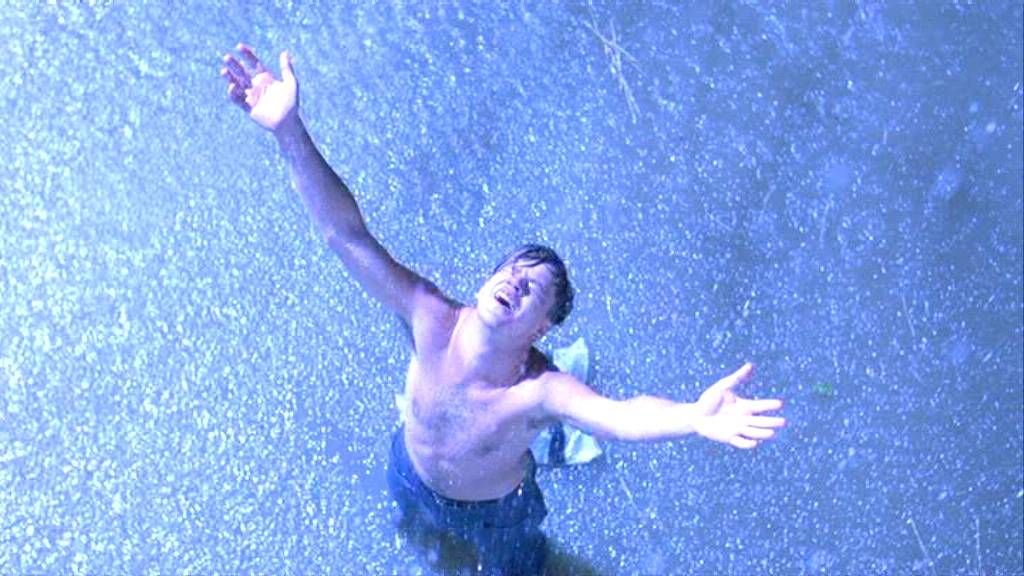
If you're like me, when you heard about the prison break in upstate New York last week, your first impulse was to cheer or at least crack a smile. And hearing how they used power tools made their life on the lam seem even more romantic. I quickly came to my senses. "These are criminals who deserve to be there," I said to myself. I suspect I wasn't the only one who had this reaction.
I don't want to blame Hollywood for my moral myopia, but I think my reaction was Pavlovian, conditioned by years of breakout movies. I saw these films as a child in the '60s—from The Great Escape (POWs bolting from a Nazi prison camp) to Doctor Doolittle (Rex Harrison springs a seal from the circus imprisonment). In the '70s, I moved on to bloody classics like Papillion, the Steve McQueen–Dustin Hoffman mosquito-and-gangrene-laden escape from Devil's Island as well as the campy Breakout in which Charles Bronson is lifted out of a Mexican jail by helicopter. As an adult I saw the most lyrical prison move of them all, The Shawshank Redemption, where Tim Robbins was convicted of a crime he didn't commit and, over a period of decades, dug his way out. The 1994 classic had the benefit of making Morgan Freeman, who narrates the film, the go-to voice for everything.
The New York escapees, two convicted murderers named Richard Matt and David Sweat, have already been compared to the characters from Shawshank. They dug their way out of the Clinton Correctional Facility in Dannemora, New York, 25 miles from the Canadian border.

The two men were not unjustly locked up. Matt was convicted for killing his boss and, while he was on the run for that crime, slew another man in Mexico. When he returned to the U.S. for trial, The New York Times reports, security was tight. Matt wore a stun belt that could quickly incapacitate him and the glass was removed from the wood counsel tables so that he couldn't smash it into shards. Before last week's breakout, which has since caused a school lockdown in the surrounding area, Matt had escaped prison on another charge back in the 1980s.
I'm not one to bash Hollywood for being liberal (it is) or simplistic (even more so). But it's worth noting that the prison breakout story is incredibly lopsided. I can think of a number of movies where we root for the fugitives, including, well, 1993's The Fugitive. George Clooney has done two—one quirky (O Brother, Where Art Thou? in 2000) and one sexy (Out of Sight with Jennifer Lopez in 1998). Most seem to echo the 1932 film, I'm a Fugitive From a Chain Gang, which traces the hard-luck story of a prisoner who escapes only to be returned to his human cage and escape again. The men portrayed in these films are either unjustly incarcerated, heinously oversentenced in the Les Misérables tradition or just likable enough to deserve our sympathy. The get-out-of-jail story is a trope for keeping one's humanity and using ingenuity and bucking the man.
Yes, there are plenty of movies where the escaped prisoner is a bad guy. Heath Ledger's Joker breaks free from Gotham's hapless jailers in The Dark Knight Rises. And if you can actually remember the plot of Air Force One beyond Harrison Ford grimacing, the 1997 blockbuster pitted the president against Russian nationalists who hijack his plane so they can get their leader released from prison. Few I imagine, rooted for Anthony Hopkins to break out of his cage and beat (and eat) two cops to death in Silence of the Lambs, the 1991 film that won best picture. The Prince of Tides reveals the horrors inflicted on a child whose family is besieged by escaped convicts.
Still, it's a heroic narrative that drives the thrust of most Hollywood prison breaks. And sometimes, there are political undertones, too. In The Defiant Ones, a 1958 film starring Sidney Poitier and Tony Curtis, the two protagonists are in a southern chain gang. They escape, but they're shackled together, a bond that forms the core of one of the more underrated movies about race relations. A decade later, Paul Newman's classic, Cool Hand Luke, pits prisoners against a sadistic sheriff. The film is emblematic of the anti-establishment wave sweeping the country at the time.
Hollywood is under no obligation to reflect life as it is. If we wanted that, we wouldn't go to the movies in the first place. Besides, the prison escape predates the talkies. The Count of Monte Cristo, as Tim Robbins notes in Shawshank, is a prison breakout novel. And in an age when both parties are turning against mass incarceration it's easy to see why the prison escape movie would have more currency.
Yet it's also worth remembering that most prisoners are there for a reason. And their decision to jump the fence—or burrow under it—is often no more an act of political or moral rebellion than the crimes that put them behind bars in the first place. I keep trying to remember that.
Uncommon Knowledge
Newsweek is committed to challenging conventional wisdom and finding connections in the search for common ground.
Newsweek is committed to challenging conventional wisdom and finding connections in the search for common ground.
About the writer
Matthew Cooper has worked for some of America's most prestigious magazines including Time, The New Republic, National Journal, U.S. News ... Read more





